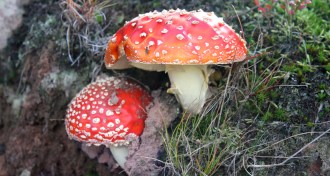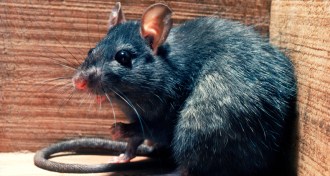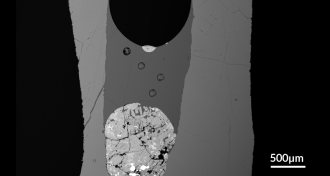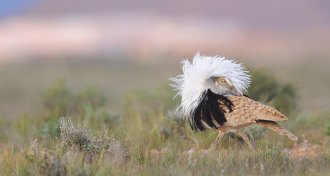Uncategorized
-
 Oceans
OceansGlassy blue iceberg goes belly up
A photographer snaps a rare picture of a recently overturned iceberg near Antarctica.
-
 Life
LifeGene study digs into partnership between fungi and plants
Fungal genes for symbiotic relationship with plants evolved a few times, and relatively recently, a study suggests.
-
 Health & Medicine
Health & MedicineEarly peanut exposure can reduce likelihood of allergy
In many infants at risk of developing a peanut allergy, early and steady exposure to peanut butter prevents it, a new study finds.
By Nathan Seppa -
 Ecosystems
EcosystemsBubonic plague was a serial visitor in European Middle Ages
Outbreaks of Black Death in medieval Europe may have been triggered by faraway weather patterns and hungry gerbils.
-
 Earth
EarthSteam bubbles carry gold and sulfur up from Earth’s depths
Dense blends of metals and sulfur get a ride to the surface on water vapor bubbles.
-
 Science & Society
Science & SocietyEnjoy scientific curios collected over decades
Explore a modern scientist's curiosity cabinet.
-
 Science & Society
Science & Society‘This Idea Must Die’ singles out scientific theories ready for retirement
Researchers and writers weigh in on theories getting in the way of scientific progress in this collection of essays.
-
 Health & Medicine
Health & MedicineSix ways to beat chronic stress
Counseling, mindfulness training and purposeful social contact may counteract the effects of chronic stress.
By Nathan Seppa -
 Health & Medicine
Health & MedicineChronic stress can wreak havoc on the body
Scientists are shedding light on all the ways that chronic stress can boost inflammation and lead to serious health problems.
By Nathan Seppa -
 Animals
AnimalsFlamboyant old bustards keep showing off
Among outrageously flirtatious birds called houbara bustards, old males may pay a penalty for years of extreme display.
By Susan Milius -
 Psychology
PsychologyGene variant may foretell success in program for at-risk kids
Disruptive children with DNA twist show biggest turnaround with 10-year intervention.
By Bruce Bower -
 Planetary Science
Planetary ScienceSpace simulations of 1960s focused on survival
50 years ago, space simulations focused on survival. Now, quality of life is critical, too.